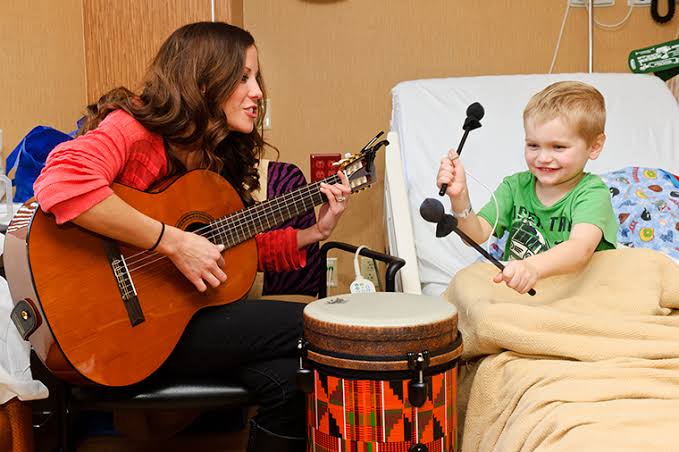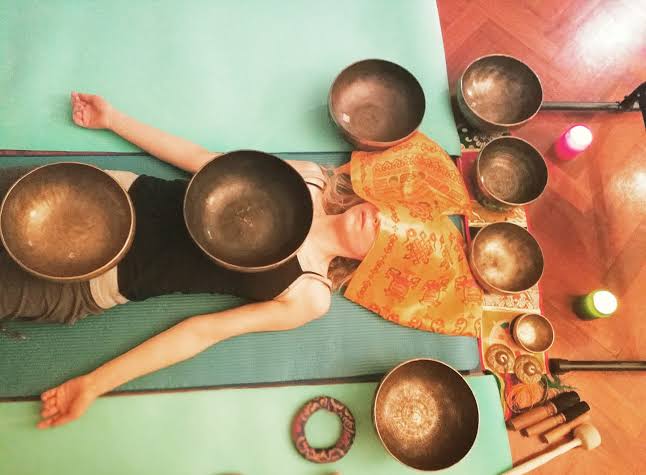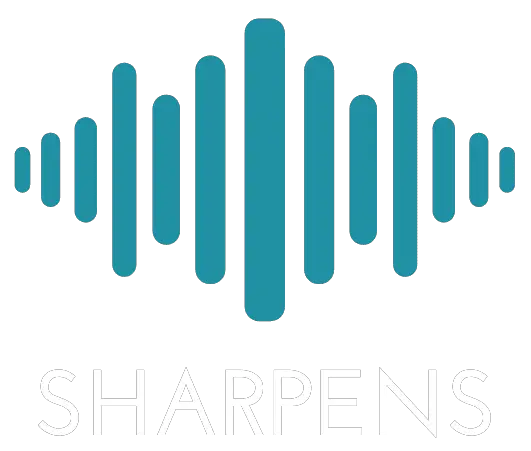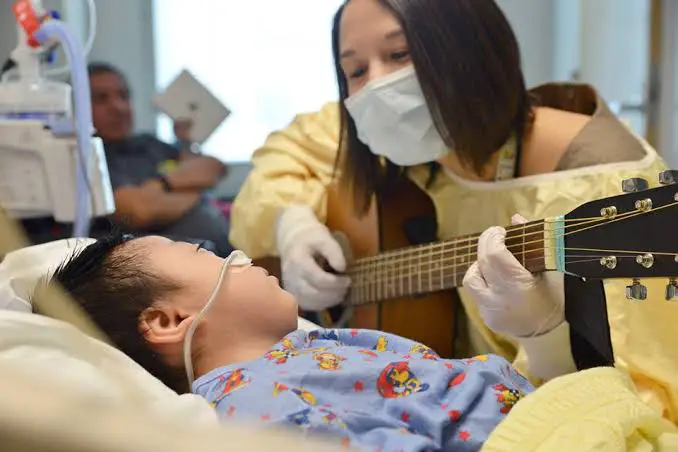It is unbelievable to find a person who has no apparent strong bond with music. Regardless if an individual is out of tune or no skill in playing instruments has a list of songs and music which provoke optimistic thoughts, improve mood and uplift his soul.
Even surgeons have used the healing powers of music during an operation, which also proven to have benefits on the improved condition of patients. Music is used for therapy sessions as part of the healing process of clients as well. With the existence of such practices, it is easy to say that music has not only the possibility of healing, rather it has been utilized for such purpose.
Believed to trace back in the ancient time of Greece, wherein sound was used as a healing tool in their huge attempts in curing mental ailments. It even boosts motivation as much as healing among individuals who desire one ever since music has delivered an essential role in the healing aspects of humans.
But how does it work? What is the aspect of music that allows people to heal? In this article, we will discuss these topics and investigate deeper into the possibilities and potentials of music in the healing of humanity. Take a look down below for the answers.
Music

Music is a form of art produced by the combination of vocal sounds or instruments used by many as a form of expression, demonstration of cultural heritage, and many others. Whether it is folk, modern, or electronic, they all fall to the same category, music.
Historically, music has been part of people’s lives, culture, events, rituals, and therapy due to its capabilities to express and influence individuals’ emotions and feelings.
Music is prevalent all over the world, and many entities have recognized its significance in human life. Its application to therapy and healing testify the effectiveness of its capacity to influence human behavior positively.
Music Therapy
Music therapy is a type of therapy that utilizes music as a form of therapeutic healing of the improvement of the health and overall well-being of patients or clients.
By the power of listening, creation, and reflection on music are the fundamental techniques used in music therapy. With these, clients are expected to develop how to fully express themselves and enable to process crisis of life.
It also allows them to improve their social skills, interpersonal relationships, and communication. Generally, music therapy allows clients to find inner solace and unrestricted expression of emotions.
This therapy is directed by professionals specializing in music, which typically happens as a group or individual session. Naturally, the therapy incorporates other types of therapy, or medication if necessary.
Music therapy is applied to clients who need life intervention as it has authorized programs constructed to promote vital wellness, emotional expression, memory enhancement, rehabilitation, and stress management.
Significance of Music
Even humans have not been born yet; music is already part of their lives. The heartbeat of the mother serves as music to the ears of the unborn child inside the womb, which gives him comfort and safety feelings.
The voice of mothers when they sing or talk and every movement they make are music to the child’s ears, which resembles healing, development, and protection. Ever since, music is already a healing therapy, we barely realize.
Music dominates every event of people’s lives, including birthdays, social activities, and ceremonies. It brings glorious emotions and sensations that marked in many people’s minds and souls. With these, ingrained experiences from music are utilized to promote the mind in assisting the reconnection of strength, physical rehabilitation, and hope within the lives of humans.
How it Functions

With the utilization of various sound elements, music therapy helps in the enhancement of the overall well-being of a human. The application of music depends on the procedure employed. Typically, it is done individually, conducted by a professional with facts and clinical based programs in music therapy.
The procedure includes the client sitting or lying while hearing to sounds or music, which produced either by an actual instrument or a speaker. Vibrations can be used as well in special cases.
During these moments, the therapist will demand the client to stay still and quiet, letting the music internalized. Client participation may also be present during the session, which includes singing, performing movements, or playing instruments.
Benefits of Music

Music Can Heal Pain
Music has great potential in terms of healing medical conditions. It is supported by several reports which showed fast recovery cases of patients who underwent back surgery.
There were also additional reports of lesser manifestation of pain after surgery when the physical rehabilitation process integrated with music therapy. Music can connect to the functions of the brain and heart, that controls feelings and functionally of the entire human body.
Slow music, in particular, has the capacity to react to the body that slows down the heart rate and decreases of heightened blood pressure. The reaction can provide a lesser feeling of tension on shoulders, back, neck, and other parts of the body. The slow calming vibration of a slow song can help relax the body and result in positive abrupt recovery.
Music Can Heal Memory and Focus
Evidently, many stroke patients have shown fast enhancement of verbal memory, and great improvement of attention and focus after underwent music therapy for several hours. They have also demonstrated the enhancement of mood compared to patients who are just listening to audiobooks and did not hear entirely.
The results even stimulate recommendations for clinical application, specializing the stroke patients. Music therapy was included in the standard caring for patients who provided significant improvement in the program. It likewise authorizes clinicians to offer an affordable way to promote faster healing.
Music Can Heal Motor Coordination
There were actual cases in which music is incorporated in the fast recovery of injuries or diseases associated with the brain. According to a brain scan, music connects with motor control of humans that allows patients with Parkinson’s disease; for instance, to control their motor skills.
Many Music Therapist suggested music intervention as part of the standard rehabilitation program of this group of individuals, as the evidence strongly indicates its capacity.
Music Can Heal Stress and Anxiety
Researchers discovered that music is a beneficial and great tool in managing stress, provided that music has calming impacts on the mind. They have realized that the function of the brain is effortlessly altered by just listening to music, which medication could bestow as well. As compared to medication, music is cheap and convenient, which makes it a great option.
There are types of music that facilitate the reduction of stress significantly. It includes stringed instruments of India, sounds produced by musical instruments like flutes and drums or from nature, like thunder and rain. It may also include jazz and classical music.
However, these types of music are only suggested with the support of researches with findings provided that loud music contributes to stress and pressure. Generally, relaxation songs may depend on the preference of an individual.
Moreover, listening may not be the only aspect of healing. Making music or creating a song allows an individual to discharge stress and return to fundamental functionality.
Music Can Heal Emotional Problems
Music was found to have a positive impact on the thoughts and behavior of people. Therapists have actual reported cases in which patients indicated improvement of connection with others and their overall mental health. With these, music has generated a significant impact on patients’ emotional well-being by providing an optimistic view of the world and people.
Takeaway
Music has provided everyone the chance to heal by just listening to music or creating one, without them knowing it. Guided and supported with tremendous facts and researches, the capacity of music to give life to parties, occasions, and events is an understatement compared to the entire capability of it on human bodies, well-being, treatment, and mental health. Medical practitioners and therapists may need to incorporate the power of music therapy in the standard treatment program of patients or clients. With its low cost and high effectiveness, it brings the future of natural intervention.



